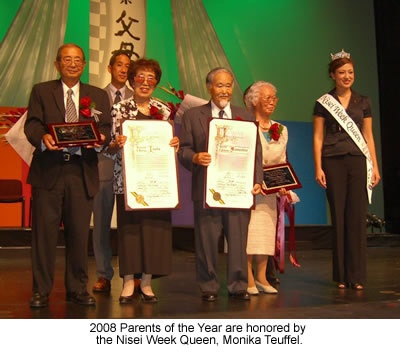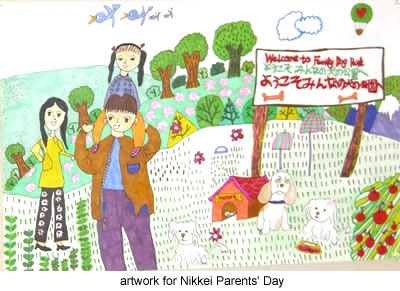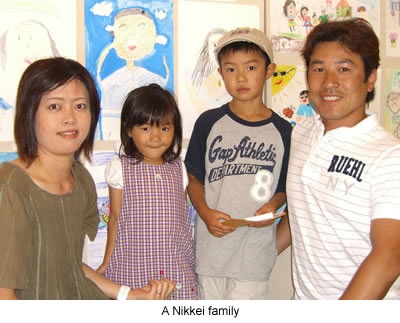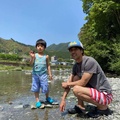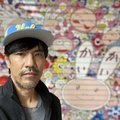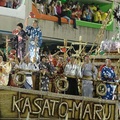Nikkei in Los Angeles recognized Parents’ Day on July 27 with a ceremony honoring the 2008 Parents of the Year at the George and Sakaye Aratani Japan America Theatre in Little Tokyo. This year the honor was bestowed upon two families, Kaname and Kuriyo Inaba of Northridge and Haruo and Takako Yamashiro of Gardena. Both families were recognized not only for being role models as parents but for their commitment to community service as well.
Local children participated in the celebration by drawing pictures of their families for the Nikkei Parents’ Day art contest. And there was also a speech contest where young people expressed their thoughts about their parents—sometimes with humorous results.
You’ve probably never heard of Parents’ Day, but it’s an officially recognized day that promotes positive parenting and reaffirms family values. In 1994, President Bill Clinton signed a bill making the fourth Sunday of July “Parents’ Day.” So while it may not be as delicious as National Doughnut Day or as entertaining as World Juggling Day, it is nice for parents to have their own day too.
For Nikkei parents, especially those who are immigrants, raising a family in a new country has its own challenges. In cases where immigrant parents haven’t mastered the local language, a communication gap between the parents and children can be a source of shortcomings. How do parents help their children with school homework or make a child understand what they did wrong when being disciplined?
Another challenge is the difference between the Japanese and American systems of values and acceptable behavior. For example, in Japan, respect for one’s elders is one of the core values. Do Nikkei parents feel it is necessary to transmit this belief on to their children? Or would their children be better off to learn only American values? But values aren’t the only thing that Nikkei parents need to worry about passing on to their children. What about language? And culture? And history? The kind of identity and character the child will have as an adult will be forged by the decisions made by the parents.
For parents that do feel it is important for their sons and daughters to hold on to some form of cultural identity, they have some community help. Kids can be enrolled in Japanese school on weekends, take up a cultural activity like taiko or martial arts training, attend services at a Japanese community Buddhist church or take part in kenjinkai (prefectural associations) activities.
But as is true for all families, regardless of where they come from, children learn the most from their parents.
Historically, Issei parents were not known for their parenting skills. Fathers were usually too busy working and were stoic when it came to affairs of the family. Mothers were busy too with running the house and often working on the side to earn extra cash. Children were often given responsibilities and had to manage chores, or work in the fields or take care of the younger ones. In oral history interviews, Nisei veterans of World War II would often say that the only time their fathers shook their hands was when they left for the war. And commonly, the only thing their fathers would say was, "don’t bring shame to the family."
Times have changed; today’s families whether the parents are from Japan or are third or fourth generation Japanese Americans lead lives filled with modern conveniences. The way children are raised has progressed as well. But regardless of the time period or the parenting style, some things remain constant. Parents that can provide a stable environment and pass along important life skills prepare their children to be responsible and healthy adults.
I’m lucky enough to be blessed with parents who love me and did their best to raise me right. Maybe I’m biased, but I think they did a pretty good job. I’d like to nominate them for Parents of the Year and give them a trophy or something. But I’m sure a thank you... and some grandkids, would be enough.
© 2008 Bobby Okinaka


